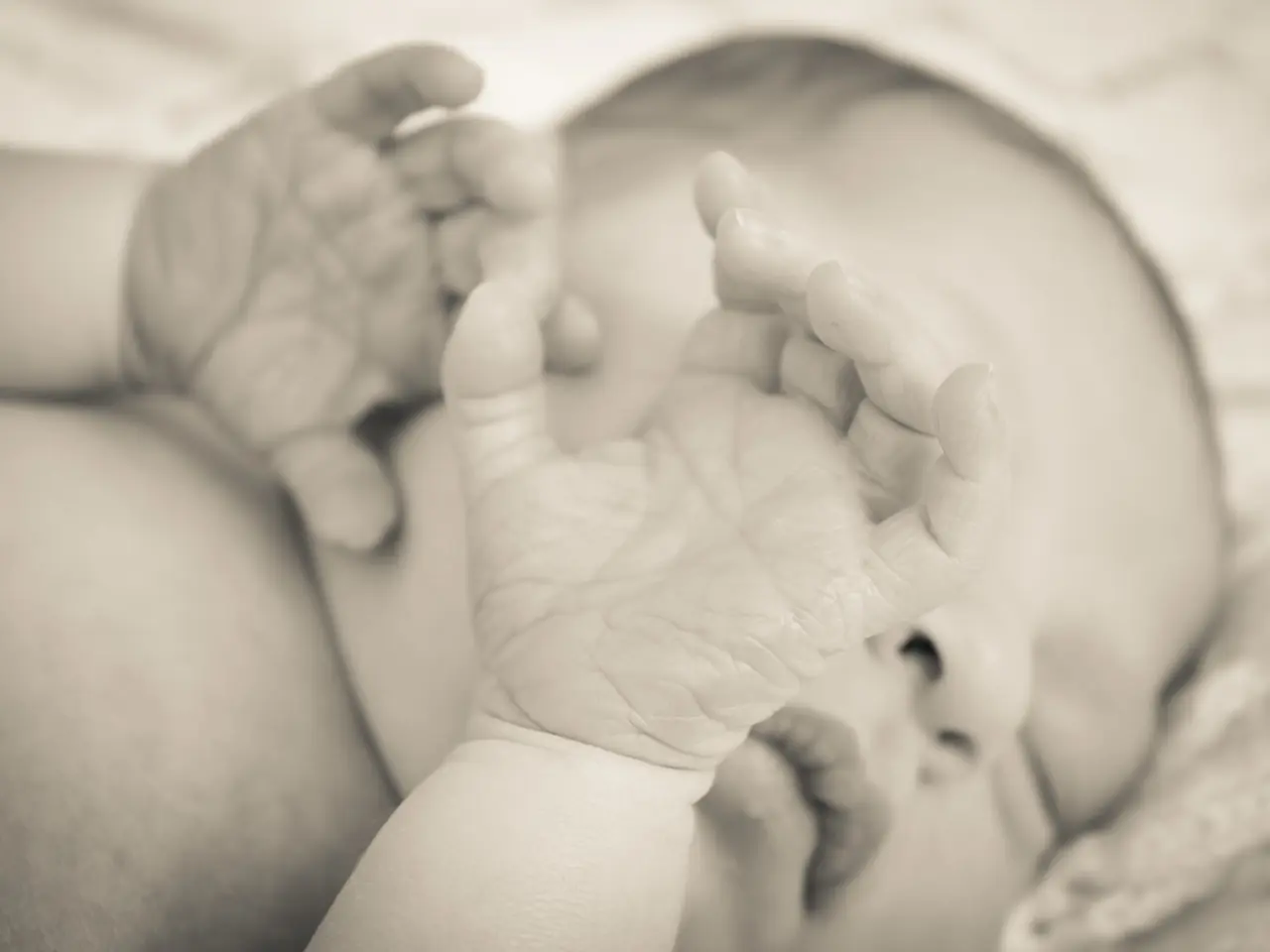Kids' Miracle Success Stories of 2023 featuring Liliana Tahou
In a heart-wrenching tale of resilience and medical perseverance, Joan and Ike Tahou's daughter, Liliana (Lily), was born at 36 weeks via emergency C-section. Facing complications such as blood loss, organ failure, and oxygen deprivation to the brain, Lily's early days were fraught with challenges.
Upon birth, Lily was diagnosed with pulmonary hypertension of the newborn, a condition that hindered effective oxygen intake. To help control her breathing and improve oxygen levels, she was placed on high-frequency oscillatory ventilation. However, the care team was faced with dual concerns: the lack of oxygen flow to her brain and her severe anemia due to the massive blood loss.
The initial suspicion was that Lily's placenta hadn't separated, but further analysis revealed fetal-maternal hemorrhage, with 85% of Lily's blood transferred to Joan. This condition required immediate medical attention, often involving blood transfusions and careful monitoring of both the mother and the fetus.
Lily needed CPR and intubation due to a low heart rate and inability to breathe on her own. As the first day of her life turned into the second, caregivers completed their third transfusion, and she started to stabilize, providing some measure of relief to Joan. Several partial-volume exchange transfusions with donated blood were conducted to address Lily's anemia, with three transfusions given to increase her hematocrit levels while removing her depleted blood.
The care team moved to cool Lily's body temperature to approximately 92 degrees Fahrenheit as a method to reduce the negative impact of the lack of oxygen on her brain. Justin Rosati, MD, was tasked with monitoring Lily's neurological development, and although initial MRI results were uncertain due to Hypoxic Ischemic Encephalopathy (HIE), positive signs began to emerge as Lily recovered enough to have an MRI by day five.
Joan, a sleep technologist at the medical center, witnessed her daughter's condition deteriorate and could only watch as caregivers worked to save her. Despite the gravity of the situation, Joan and her husband were determined to save their daughter. As Lily met developmental milestones such as eating solid foods, standing up, and crawling, it became apparent that she had avoided long-term neurological damage.
Now approaching a year old, Lily is doing remarkably well. The longer she gets away from the incident and the better she does, the better the long-term outlook looks. This inspiring story serves as a testament to the power of medical science, resilience, and the unwavering love of a parent.
Read also:
- Hospital's Enhancement of Outpatient Services Alleviates Emergency Department Strain
- Increased Chikungunya infections in UK travelers prompt mosquito bite caution
- Kazakhstan's Deputy Prime Minister holds discussions on the prevailing circumstances in Almaty
- Researchers Create Implantable Gadget for Instant Inflammation Surveillance





